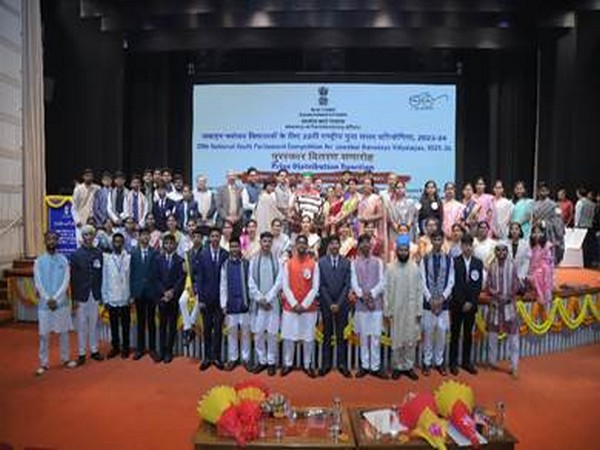Russia maintains positive U.S. ties despite mixed signals from Washington policies
Russia Navigates Diplomatic Ambiguity, Seeks Stable Ties with the U.S. Amid Policy Contradictions
In a world where international relations can turn on a tweet or a policy reversal, Russia is taking a calculated approach to managing its relationship with the United States. Despite a growing list of disagreements, sanctions, and sharp political rhetoric from Washington, Russian officials have emphasized that they are committed to maintaining constructive engagement. As global power dynamics shift and economic interdependence evolves, Moscow appears determined to separate political posturing from practical diplomacy at least for now.
Senior Russian diplomats have repeatedly stated that while U.S. foreign policy often sends “mixed signals,” Moscow is not interested in fueling antagonism. Instead, the Kremlin has adopted a strategy of strategic patience publicly pointing out inconsistencies in American policies while continuing to engage through formal diplomatic channels. This posture, while not without skepticism, reflects Russia’s broader effort to remain relevant in global discussions and to avoid being painted solely as a pariah state.
Tensions between the two nations have ebbed and flowed in recent years, largely shaped by flashpoints such as the war in Ukraine, NATO’s eastern expansion, cyber espionage allegations, and economic sanctions. Despite these issues, Russia has participated in dialogues on global energy markets, arms control frameworks, and regional security initiatives. Moscow recognizes that despite ongoing conflicts of interest, maintaining diplomatic pathways with Washington is essential to managing global volatility, especially as new conflicts in other regions threaten to strain international cooperation further.
In a recent public briefing, Russian Deputy Foreign Minister Sergei Ryabkov criticized Washington’s “erratic behavior” while maintaining that Moscow would not be the one to slam the door on dialogue. Ryabkov pointed out that even during the Cold War, U.S. Soviet communication lines remained open a precedent he believes should inform current diplomacy. He further emphasized that Moscow sees value in multilateral cooperation and that domestic resilience strategies have helped insulate the Russian economy from U.S. led sanctions. “We are not seeking confrontation,” Ryabkov said, “but we won’t be naive about our partner’s unpredictability.”
From the U.S. side, the tone has varied significantly depending on the administration and the geopolitical context. While the Biden administration has taken a firm stance on Russia’s actions in Ukraine and imposed strict sanctions, there have also been moments of cautious outreach, including the extension of the New START treaty and periodic arms control discussions. On the sidelines of global summits, lower level talks on cybersecurity, space cooperation, and counterterrorism have continued, albeit quietly. These limited channels demonstrate that even in times of public acrimony, backdoor diplomacy remains active.
Russia has used this ambiguity to its advantage engaging in global forums, forming new alliances, and positioning itself as a counterweight to what it perceives as Western overreach. In speeches and media appearances, Russian officials have drawn a sharp line between what they call “Washington’s global agenda” and the American people, whom they describe as “interested in peace and economic opportunity.” This messaging attempts to bypass political elites and appeal to a broader American audience, particularly businesses and academics, who may be more open to renewed cooperation in specific sectors.
However, challenges remain. The ongoing conflict in Ukraine, continued NATO support to Kyiv, and concerns over Russian cyber operations continue to cast a shadow over any diplomatic progress. Moscow insists that it is ready for talks, but only if Washington acknowledges Russia’s security concerns and sovereign interests. For now, the Kremlin appears to be waiting for signs of consistency from the U.S. if that comes from a change in leadership, a shift in public opinion, or a new global crisis that compels renewed cooperation.
Conclusion
Russia’s balancing act condemning U.S. hostility while preserving diplomatic ties reflects both pragmatism and political calculation. By choosing to stay engaged despite tensions, Moscow is signaling that it still sees value in a functioning relationship with Washington, however limited. if this approach yields tangible progress remains to be seen, but one thing is clear in today’s fragmented world, diplomacy may be messy and contradictory, but disengagement is no longer a viable option.






 Western Ghats Receives Record Rainfall
Western Ghats Receives Record Rainfall  Deep Ocean Sensors Offer Hope in Earthquake Forecasting
Deep Ocean Sensors Offer Hope in Earthquake Forecasting  US back to school spending to hold at $30.9B despite inflation
US back to school spending to hold at $30.9B despite inflation  New Formulation Doubles Vaccine Shelf Life Without Refrigeration
New Formulation Doubles Vaccine Shelf Life Without Refrigeration  Week Long Rail Disruption in Northeast Ends as Services Resume
Week Long Rail Disruption in Northeast Ends as Services Resume